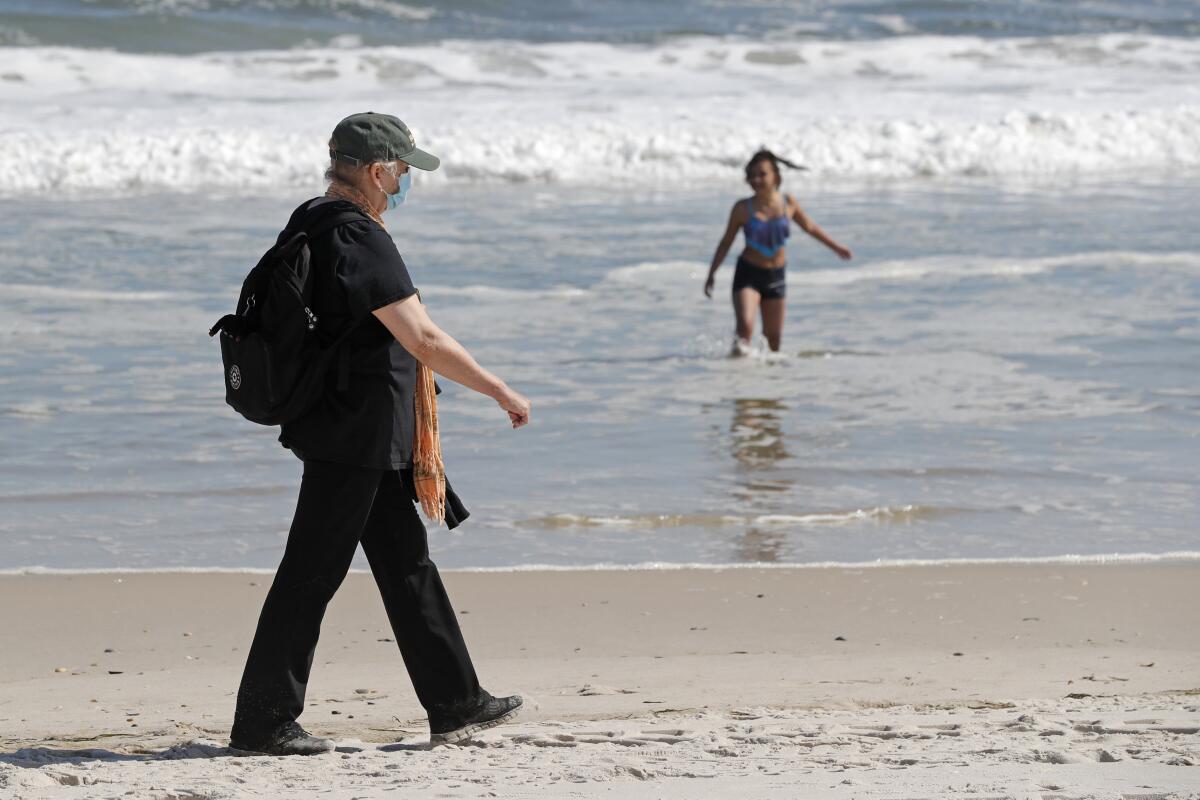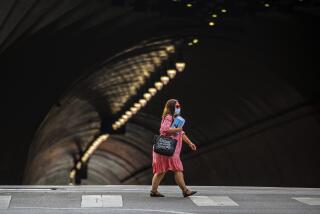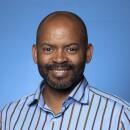Trump demands churches open, despite coronavirus fears, as Memorial Day weekend begins

- Share via
Memorial Day weekend traditionally means family barbecues, road trips, crowded parks and carefree days spent basking by the water, but Americans venturing out after weeks of sheltering in place are being asked not to let up their guard as the coronavirus continues to spread.
Brushing aside warnings by public health officials about the ongoing risk of holding large gatherings, President Trump called on governors to reopen churches “right now, for this weekend” during a news briefing at the White House on Friday.
“Today I am identifying houses of worship, churches, synagogues and mosques as essential places that provide essential services,” Trump said. “Some governors have deemed liquor stores and abortion clinics as essential but have left out churches and other houses of worship. It’s not right.”
“These are places that hold our society together and keep our people united,” he said, while expressing confidence that religious leaders will work to ensure that their congregations will be safe.
He vowed to “override” any governor who refused to do so. A White House spokeswoman later acknowledged the decision would be “up to the governors.”
In-person religious services have been vectors for coronavirus transmission. A person who attended a Mother’s Day service at a church in Northern California that defied the governor’s closure orders later tested positive, exposing more than 180 churchgoers. And a choir practice at a Washington state church was labeled by the Centers for Disease Control and Prevention as an early “superspreading” event.
More than 95,800 people in the U.S. have died of COVID-19, according to Johns Hopkins University, which has been tracking the data.
Visitors to public spaces around the country can expect distancing restrictions and many closures.
At the famous beachside boardwalk at New York’s Coney Island, residents can stroll on the sand and even dip their feet in the ocean, but swimming is still banned, and people in the nation’s largest and hardest-hit city are being encouraged to keep their distance from one another.
Residents are free to enjoy the sand and surf in Virginia Beach, Va., but that city’s mayor, Bobby Dyer, said 150 “beach ambassadors” would be dispatched to ask residents who are congregating in large groups to comply with social distancing rules.
Dyer delivered a sobering message to weekend revelers during an address Friday.
To prevent an uptick in COVID-19 cases during over the weekend and throughout the reopening, he said, people must maintain social distancing and immediately self-quarantine if they feel sick.
“Folks, the simple fact is, if we do not voluntarily comply with these measures, we may have no choice but to move to even stricter quarantines and curfews,” Dyer said.
“Parents must take responsibility for their children, and young people must understand that they are not invincible and in fact could be carriers of the virus and infect people around them,” he said. “If there was ever a time for each of us to behave responsibly to protect the welfare of others, it is now. We can live with the inconvenience now so we don’t have to live with regrets later.”
In Wyoming, visitors can once again visit Old Faithful and other attractions in Yellowstone National Park’s lower section following the decision to reopen some entrances this week.
But Disney fans will have to wait a while longer for the Magic Kingdom and the company’s other theme parks in central Florida to come back to life. The company could submit its plans for reopening to officials in Orange County, Fla., where Walt Disney World’s resorts are located, as soon as next week, the county’s mayor, Jerry Demings, told CNBC on Thursday.
Universal Orlando has told county officials it plans to reopen in early June.
The casinos, clubs and live shows of the Las Vegas Strip also remain shuttered for now, with the Venetian expected to become the first major resort to reopen in early June.
All 50 states have now at least partially reopened as of this week, but polls have shown that the majority of Americans fear a rebound in COVID-19 cases as officials loosen restrictions on businesses and public spaces like parks and beaches.
In Georgia, Gov. Brian Kemp took to Twitter on Thursday night to try to reassure worried residents of his state, announcing that the number of COVID-19-related hospitalizations in his state had dropped below 1,000, which he said represents a 38% decrease since May 1.
Georgia public health officials have been under pressure in recent days because of flaws in their COVID-19 data collection methods and mistakes on their publicly viewable tracking website.
Coronavirus Response Coordinator Dr. Deborah Birx gave a mostly upbeat assessment of the nation’s progress when speaking to reporters at the White House on Friday. But she singled out Los Angeles as one of three metro areas that, despite strong measures, has plateaued in the number of cases.
“Even though Washington has remained closed, L.A. has remained closed, Chicago has remained closed, we still see these ongoing cases,” she said.
She said she has asked the CDC to work with those areas “to really understand where are these new cases coming from, and what do we need to do to prevent them in the future.”
As of Thursday night, Los Angeles County had more than 43,000 confirmed cases in Los Angeles and 2,049 deaths, according to the county health department.
The president stirred controversy earlier in the week when he revealed that he’s been taking the antimalaria drug hydroxychloroquine as a preventive measure against COVID-19, even though it’s an unproven treatment for the disease. On Friday, new research published in the journal Lancet backed up doubts about its effectiveness.
A study of more than 90,000 COVID-19 patients around world showed that the drug, used alone or with an antibiotic, offered no benefit against the virus. The researchers also found a greater risk of developing an irregular heartbeat and death among patients who use the drug.
Nationwide, the coronavirus outbreak is hitting people of color especially hard.
Blacks make up an estimated 30% of those whose who’ve died from the disease, despite only representing 13% of the U.S. population, according to data collected by the U.S. Centers for Disease Control and Prevention.
But it’s not just that blacks and Latinos are overrepresented among those killed by the virus.
Blacks and Latinos are more likely than whites to know someone who has died from the disease or its complications, according to an ABC News/Ipsos poll released Friday.
While only a small percentage of Americans overall — 15% — said they personally know someone who’s died in the outbreak, 25% of nonwhite respondents said they do, compared with 10% of whites. Blacks were the most heavily impacted group among those surveyed, with a third saying they know someone who’s died from COVID-19.
There was also a racial divide when the poll’s 773 respondents were asked whether they were confident that they could get a test if they needed one. Seventy-five percent of white respondents expressed confidence, compared with 65% of nonwhites.
Even though the outbreak has ravaged black communities, it hasn’t dampened black voters’ enthusiasm for casting ballots in the upcoming general election, according to a poll taken in early May by the African American Research Collaborative.
Two thirds of blacks say they’re almost certainly going to vote in presidential election in November, with more than half of black registered voters — 57% — saying that the coronavirus outbreak and its economic fallout make them more inclined to vote this time than they were in 2016 when Hillary Clinton was the Democratic nominee, the researchers said.
“The pandemic is not seeming to stop voting in the upcoming election,” Dr. Ray Block, a spokesman for AARC, said during a news conference on Tuesday.
Times staff writer Eli Stokols in Washington, D.C., contributed to this report.
More to Read
Sign up for Essential California
The most important California stories and recommendations in your inbox every morning.
You may occasionally receive promotional content from the Los Angeles Times.











